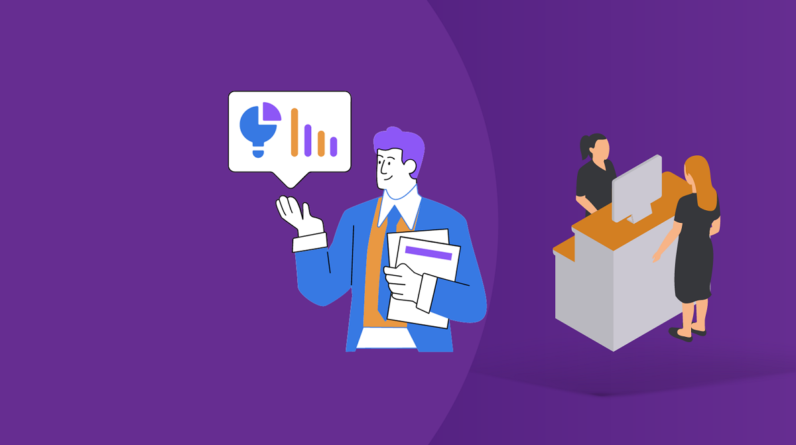
For any hospitality business, leveraging sales is vital. It is a highly competitive sector with high overheads. So to make a profit this type of business has to operate extremely efficiently, sell as much as possible to each customer. While at the same time making them feel so well served that they can’t wait to return and share what is on offer with their friends and family.
That is why technology is at the front and centre of most successful hospitality businesses. They are early adopters that fully utilize the potential of each innovation. Here are just a few examples of how hospitality businesses use technology to boost sales, specifically at the counter.
Digital display technology
From an early age, we learn that screens help us to learn, play and navigate the world. As a result, modern consumers pay a lot of attention to information or offers that are displayed on digital signage. Studies by Nielsen and Intel show that digital screens increase sales by between 13% and 33%.
That is why most hotels, cafes, bars and leisure facilities now use them. When someone who is signing into a hotel sees a spa offer displayed on the digital signage behind the receptionist often they will book a session. What is being displayed on these screens can be changed in seconds, from a console that has access to the display software. So the receptionist can ensure that an offer for something a guest who is checking out can take home with them is displayed. For example, a small hamper or luxury toiletries is displayed on the digital reception screen.
Streamlined Point-of-Sale systems
Serving customers quickly and efficiently is essential for both productivity and customer satisfaction. As a result, hospitality businesses invest in the latest technology. Their POS technology works fast while gathering data about each client and feeds into their inventory system. The latest systems include prompts to ensure that the person selling them makes the customer aware of special offers that are relevant to them. For example, a restaurant might tell a couple that they have a Valentine’s Day offer and provide them with a discount voucher. Making it clear that the offer is not available online, with the aim of encouraging that couple to tell their friends to go in for a meal, so that they also get the Valentine’s Day offer. This has the potential to attract an additional new diner. One who will visit twice, once to dine and get the voucher and again to use that discount voucher.
CRM systems for data collection and loyalty schemes
Knowing your customer is vital in the hospitality sector. The better you know them, the better you can serve them and the more likely it is that they will return.
As a result, most restaurants, hotels etc, now use Customer Relationship Management (CRM). They collect data about each client and use it to create and test new services. It also enables them to provide people with tempting special offers.
Often, the CRM system is also used to run a loyalty scheme, which is an incredibly effective way of generating more sales from the same customer base. According to Revenue Hub loyal hotel customers spend an average of 22.4% more than someone who walks in off of the street. For most hotels repeat business makes up 25% of their customer base.







